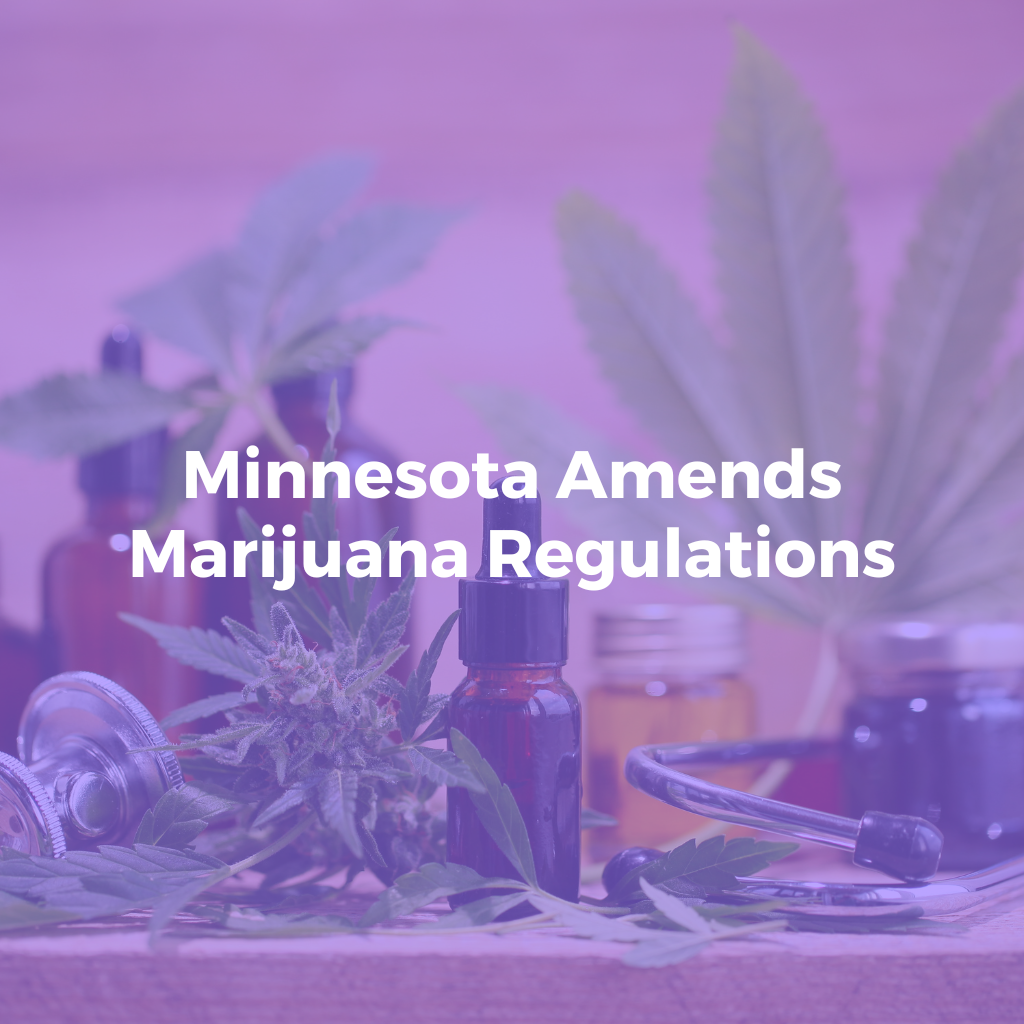July 24, 2023
Edible products containing hemp-derived tetrahydrocannabinol (THC) became legal in Minnesota roughly a year ago. Minnesota recently legalized using cannabis products and marijuana for recreational purposes. However, individuals cannot legally use recreational cannabis until August 1, 2023; some employment provisions took effect on July 1, 2023.
The Statutes Amended
Two statutes have received amendments due to Minnesota legalizing marijuana: the Consumable Products Act (CPA) and the Drug and Alcohol Testing in the Workplace Act (DATWA). The CPA protects employees using alcohol or drugs during their off-duty time, protecting them when a test comes back positive due to using lawful products. The DATWA explains when and how employers can require their employees to test for alcohol or drug use.
However, the law does not restrict drug testing for some jobs. The new amendments to DATWA exclude cannabis products and marijuana from the definition of drugs used in the statute. Some jobs also received exemptions from these amendments. As such, several employers and employees can consider marijuana a drug. Here are the jobs that may still require testing:
- Firefighters;
- Peace Officers;
- Positions in education, healthcare, childcare, or in social work industries that require interaction with children, vulnerable adults, or patients;
- Jobs where impairment would threaten a person’s health or safety; and
- Positions created through a federal grant, contracted by the federal government, governed by federal drug testing requirements, or regulated by the Department of Transportation.
When Employers Can Test Employees
Employers cannot require pre-employment drug screening for cannabis as a condition of employment unless required by state or federal law. Additionally, they cannot refuse to hire an applicant solely due to a positive test for cannabis. However, employers may still ban the use, possession, or distribution of marijuana and other cannabis products during work hours or on work premises.
Employers can test for cannabis as part of random drug tests for existing employees. However, Minnesota employers can only randomly screen employees in safety-sensitive positions. Minnesota also allows testing on professional athletes subject to certain collective bargaining agreements.
The law also allows testing for employees under reasonable suspicion. This suspicion includes the influence of drugs or alcohol, violating the employer’s drug policies, or causing or having a work-related accident or injury. Examples of employer drug policies include banning the use, sale, possession, or transfer of cannabis and related substances.
Exceptions in the Statutes
Employers should know they can prohibit employees from working under the influence. This ban includes those enrolled in medical marijuana programs. Employers intending to test or discipline employees for cannabis must comply with DATWA policy. The policy goes into effect on August 1, 2023, and contains the following:
- The employees or job applicants subjected to testing under the policy;
- The circumstances under which drug or alcohol testing may be requested or required;
- the right of an employee or job applicant to refuse to undergo drug and alcohol testing and the consequences of refusal;
- Any disciplinary or other adverse personnel action taken based on a test verifying a positive result on an initial screening test;
- The right of an employee or job applicant to explain a positive test result on a confirmatory test or request and pay for a confirmatory retest; and
- Any other appeal procedures available
After adopting the policy, the employer must provide written notification to all applicants and employees. It should clearly describe the adopted policy and prominently displayed in a noticeable location on the premises. This action ensures that individuals know, without confusion, about the workplace policy on cannabis use.
Employers should update their policies to comply with the amended statutes. Establishing a partnership with a reputable background check company is the most effective approach to ensure compliance with these and other regulations. By choosing a trusted background check provider, you can ensure that your business complies with applicable regulations and laws on employment screening.
